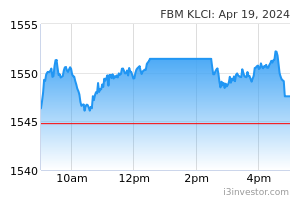Shadow economy needs to be tackled to strengthen tax collection

KUALA LUMPUR: Technology is the means by which to tackle the problem of the shadow economy — which currently makes up about one fifth or RM300 million of the country’s gross domestic product — to strengthen the government’s tax collection.
This was the highlight of a panel discussion at the International Strategy Institute’s Malaysia Tax Forum yesterday, where Deloitte Malaysia country manager Sim Kwang Gek said tax collection will be improved if the issue of shadow economy, which refers to economic activities that are neither taxed nor monitored by the government, is addressed.
Citing an example of unregistered eateries, accounting firm TraTax’s partner Thenesh Kannaa said applications like “GrabFood will solve the problem”, referring to the digital footprint left by users who migrate to cashless or electronic transactions, as opposed to cash purchases that leave no trails.
“Five years down the road, the Inland Revenue Board (IRB) can issue a Section 81 notice to GrabFood, to which it has to give its accounts,” said Thennesh. By the same token, technological advancements can be used to track those involved in the gig or sharing economy, as they use digital payment services and platforms, he said.
Sim, meanwhile, said the issuance of electronic invoices will also help to address the shadow economy, as they cannot be counterfeited as easily as physical invoices.
Meanwhile, the information collected from these digital footprints can be stored in a data warehouse, where IRB can make use of data analytics to understand taxpayers’ consumption habits, said Malayan Banking Bhd (Maybank) Group Tax and Performance Reporting Head Surin Segar, who was also a panellist at the discussion.
“We need to use data analytics and artificial intelligence to find where the money is sitting and how to recover that money,” Surin said.
These can be used together with information such as car licences from the Road Transport Department, deeds of ownership from the Land Office, as well as departure and arrival data from the Immigration Department, to determine how taxpayers are spending their money.
Educating the young on paying
Thenesh and independent political analyst Khoo Kay Peng are also of the view that the focus should be on educating the younger generation about the importance of paying tax — to view it not as an expense but rather a contribution to the nation’s coffers — in order to prevent future tax collection attrition.
Khoo said the government also has to have a “strong will to combat corruption and to be prudent in the utilisation of tax money”, to encourage people to pay taxes to boost the country’s development.
Sim, meanwhile, said that there should be continued encouragement for voluntary disclosures. “We obviously want to encourage voluntary disclosures — people coming up voluntarily to amend their tax return if they do something wrong, if they spot an error. My view is that the penalty rates for voluntary disclosure, which ranges from 10% to 35% now, can be reduced further,” she said.
As example, she pointed to Singapore, where she said there are no penalties imposed for voluntary disclosures if they are made within a year from the deadline of filing one’s tax returns. After that, the penalty is only 5%, she said.
Earlier, at another panel discussion, Amarjeet Singh, Ernst & Young Tax Consultants Sdn Bhd’s Asean and Malaysia tax leader and business tax services leader, said a holistic review of the Malaysian tax system is needed, to ensure it is in line with the country’s development objectives.
“We should do a holistic review and study of the tax system," said Amarjeet, adding that Malaysia needs to be more savvy in introducing the right types of tax incentives to attract the right types of investments.
( 24,36 % )
( 39,38 % )
( 36,26 % )


